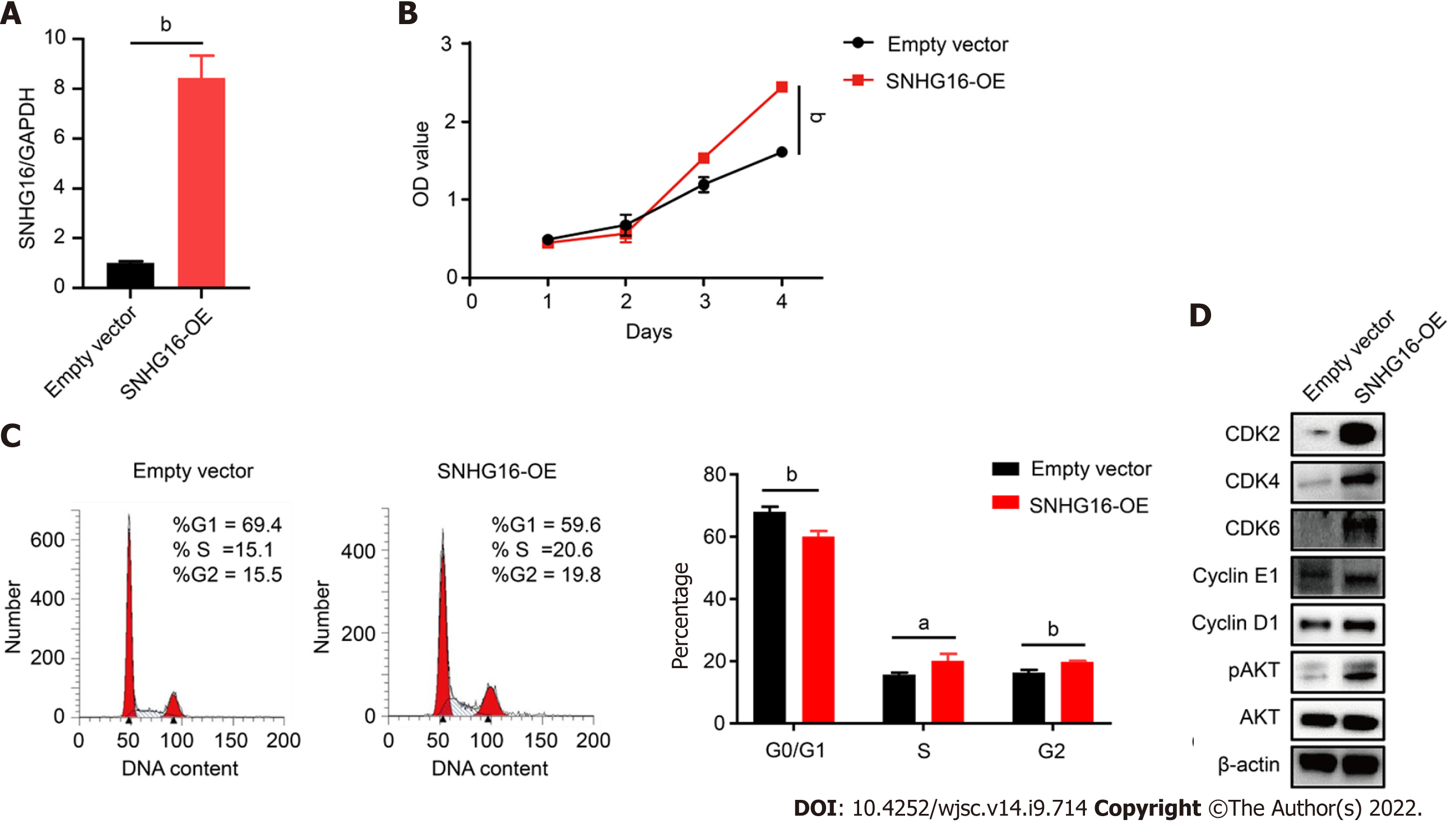Copyright
©The Author(s) 2022.
World J Stem Cells. Sep 26, 2022; 14(9): 714-728
Published online Sep 26, 2022. doi: 10.4252/wjsc.v14.i9.714
Published online Sep 26, 2022. doi: 10.4252/wjsc.v14.i9.714
Figure 6 SNHG16 overexpression resulted in activation of the PI3K/AKT pathway and a significant enhancement in the proliferative rate of human placenta-derived mesenchymal stem cells.
A: Quantitative reverse transcription polymerase chain reaction analysis of relative SNHG16 expression after transfection of lentivirus overexpressing SNHG16 (SNHG16-OE) and the corresponding empty vector in human placenta-derived mesenchymal stem cells; B: Cell proliferation after SNHG16 overexpression was evaluated by cell counting kit-8 assay; C: Cell cycle distribution after SNHG16 overexpression was evaluated by flow cytometry; D: The expression levels of CDK2, CDK4, CDK6, cyclin E1, cyclin D1, and phosphorylated AKT. Data are presented as the means ± SD obtained from three separate experiments. bP < 0.01.
- Citation: Feng XD, Zhou JH, Chen JY, Feng B, Hu RT, Wu J, Pan QL, Yang JF, Yu J, Cao HC. Long non-coding RNA SNHG16 promotes human placenta-derived mesenchymal stem cell proliferation capacity through the PI3K/AKT pathway under hypoxia. World J Stem Cells 2022; 14(9): 714-728
- URL: https://www.wjgnet.com/1948-0210/full/v14/i9/714.htm
- DOI: https://dx.doi.org/10.4252/wjsc.v14.i9.714









